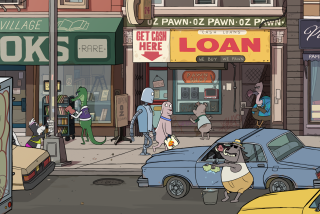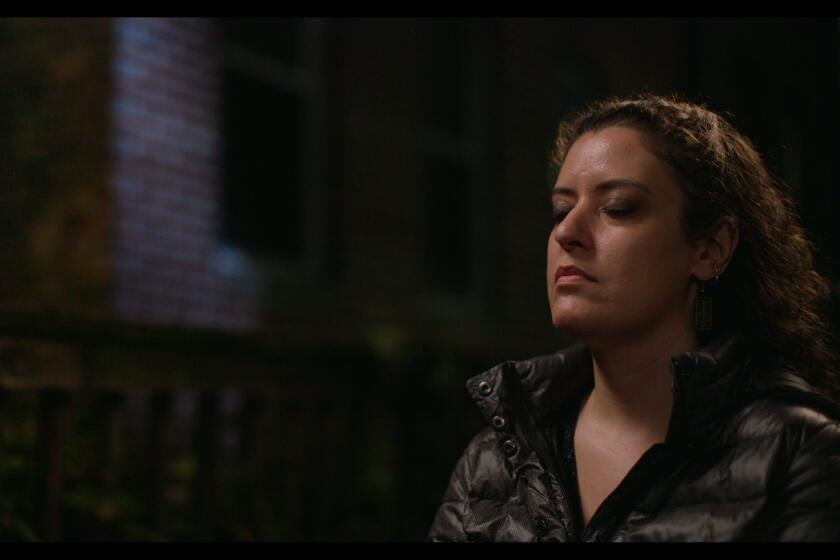Oscars 2015: Brutal honesty marks Inarritu’s bond with Cuaron, Del Toro
Director Alejandro G. Inarritu needed trusted voices to check out his first foray into dark comedy. The Mexican filmmaker was well-known for his serious dramas such as “21 Grams” and “Biutiful.” The satirical “Birdman,” however, was new territory.
So he did what he’s done dozens of times over his 20-year career. He called his old friends, fellow Mexican directors Alfonso Cuaron (“Gravity”) and Guillermo del Toro (“Pan’s Labyrinth”).
The trio came up as aspiring filmmakers in Mexico, each breaking cultural and language barriers with fiercely independent styles. Now in their early 50s, their astonishing success has informed the growing international culture of Hollywood, as well as the search for bold, original voices in cinema.
FULL COVERAGE: Oscars 2015, from the red carpet to the after parties
Del Toro is the master of special effects and fairy-tale horror in films such as “Pacific Rim” and “Hellboy.” Inarritu is known for complicated emotional and political tales, often told through multiple stories as in “Babel.” Cuaron made his name with big-picture storytelling in Hollywood films like “Harry Potter and the Prisoner of Azkaban” and edgy independent fare such as “Y Tu Mama Tambien.”
The three directors discussed Inarritu’s “Birdman” idea. His story about an aging film-star superhero who tries to make his comeback on Broadway was tricky at best thanks to its blend of psychological tension, stark realism and the supernatural.
But they spoke in the sort of shorthand that old friends use — a language built on trust, respect and brutal honesty.
“Guillermo is the master of cursing,” said Inarritu. “But with just one bad word, he can convey more to me than most people can in an entire conversation.”
“I’ll tell him if it’s [garbage],” said Del Toro. “That’s what friends do.”
PHOTOS: Oscars 2015 top nominees | Presenters | Nominee reactions | Awkward moments
The directors offered their input, as Inarritu had done many times for them over the years.
“There’s no film I do that doesn’t go through them, their eyes and their hands,” Cuaron said.
Cuaron and Del Toro agreed there wasn’t much to do this time around. Del Toro calls the film’s finished product — a riveting performance by Michael Keaton, scenes rolling out in long unbroken shots, a soundtrack made almost entirely of free-form jazz drumming — “miraculous.” Cuaron says it’s impressive “in its complexity.”
Now “Birdman” is nominated for nine Academy Awards, including best picture and director, where it’s considered to be locked in a close race with “Boyhood” and its director, Richard Linklater, to win Oscars.
If Inarritu wins the director honors Sunday, he’ll be the second Latin American and Mexican in Oscar history to do so — right behind Cuaron, who won last year for “Gravity.” In 2007, Del Toro won three Oscars for “Pan’s Labyrinth.” Inarritu has been nominated but has never won.
“When Alfonso won, we wanted so much for the Oscar to reach a Mexican filmmaker,” Del Toro said by phone from Toronto, where he is in post-production on his artfully creepy “Crimson Peak.” “It was extremely important, especially since we are living in a time when Mexico is in dire need of good news. I’ve said it [before], but you really know who is your friend when you actually forgive success.”
United in a visual and moral aesthetic that was born in Mexico, they’ve long been referred to as cinema’s Three Amigos. But each has his own clearly defined style.
Today, Inarritu lives in Los Angeles, Cuaron in London and Del Toro “wherever the exchange rate” takes him. Yet they are always connected.
Del Toro said that Cuaron recently spent three 12-hour sessions with him on Skype to help shave 11 minutes off “Crimson Peak.”
They’ve all been mentioned in various credits on one another’s films, but more often than not the work they do for each other is a labor of love. “It’s not about ego or yourself,” says Inarritu from a recent shoot in Alberta, Canada, for his forthcoming film, “The Revenant.” “It’s about how to make the film better.”
Their alliance dates back to the 1980s when Cuaron met Del Toro working on the Mexican TV series “La Hora Marcada.” Del Toro was a special effects and makeup guy from Guadalajara, Cuaron an assistant director from Mexico City.
Cuaron recalled directing his first project on the series, a segment that “everybody really liked.” Then “this big guy” walked in the room.
“He said, ‘Hey, you’re Alfonso, right?’” Cuaron said by phone from Paris. “‘You made that show inspired by the Stephen King story?’ Yeah, that was me. We started raving about the King story, then he said, ‘Let me ask you something. That story was so great, so how come your show sucks so much?’ That was the beginning of a wonderful friendship.”
Inarritu, already a well-known, eclectic music radio DJ in Mexico City, entered the picture in the mid-’90s, connecting with Cuaron through their mutual cinematographer friend, Emmanuel Lubezki (a.k.a. Chivo). Lubezki won an Oscar for “Gravity” and is up for another with “Birdman.”
OSCARS 2015: Complete list | Ballot | Cheat Sheet | Timeline | Oscars 2015 bingo
Inarritu eventually brought Cuaron early cuts of his gritty and ambitious film “Amores Perros,” about an accident in Mexico City that connects three very different groups of people. Cuaron recognized its brilliance, helped Inarritu refine his ideas and then called in Del Toro.
“Alfonso said there’s this really stubborn guy who needs someone to wrestle with him in the editing room,” Del Toro recalled. “The only other person who is stubborn enough to do this with him is you.”
He added: “Alejandro says we removed about three or four minutes of the film. We removed between 17 to 21 minutes and reorganized the way things happened. I have the VHS tape to prove I’m right.”
That kind of no-holds-barred feedback, they say, makes films better.
“Originally ‘Gravity’ was way more silent, less dialogue, more of an abstract experience,” says Cuaron. “Alejandro said, ‘I understand you’re taking a very conceptual approach, but I always go for emotion on top of concept. So some of the rules you’re setting for yourself are working against that emotion.’ Then Guillermo sat with me in the cutting room to find ways of pumping up the tension, so there was this tension all the time.”
Cuaron, Del Toro and Inarritu were part of a Mexican cinema revival that began in the ‘90s as a new wave of films such as “Like Water for Chocolate” made its way into American art house cinemas.
By the time “Amores Perros” opened in 2000, said Del Toro, “it seemed to finally catalyze every effort that came before and then surpassed them. It opened the flood gates.”
Cuaron’s “Y Tu Mama Tambien” and Del Toro’s “The Devil’s Backbone” followed, becoming their breakthrough Spanish-language films. By the time Del Toro reached Cannes for the premiere of “Pan’s Labyrinth” in 2006, he did so with Cuaron and Inarritu in the same room.
After the credits rolled, the crowd roared its approval. Del Toro recalled being strangely absent in the moment.
“I was not allowing it to sink in. I was not enjoying it,” he said. “Alfonso hit me on the back and said, ‘Relax, man. Enjoy it. Let yourself be loved.’ ”
More to Read
Only good movies
Get the Indie Focus newsletter, Mark Olsen's weekly guide to the world of cinema.
You may occasionally receive promotional content from the Los Angeles Times.











